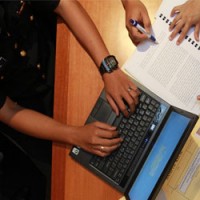Tackling corruption is one of the priorities of the government, and we are now seeing the results of its concerted approach to root out corruption at all levels. The nation has improved to 54th spot in the Corruption Perceptions Index 2012 (CPI) from 60th position last year.
Transparency International-Malaysia (TI-M) president Datuk Paul Low said Malaysia scored 49 out of 100 in the global survey which gauges the perceived level of public sector corruption across 176 countries.
“Malaysia’s position has improved slightly, staying in the mid-range average, indicating that many steps undertaken by Prime Minister Datuk Seri Najib Tun Razak through the Government Transformation Prog¬ramme (GTP) to fight corruption have shown results,” Low said.
The CPI measures the degree to which corruption is perceived to exist in a country through 13 different surveys and country assessments by independent institutions. These are conducted among experienced observers such as businessmen and country analysts.
Low welcomed the government’s commitment to fight corruption, saying Malaysia was the only country in the world that was brave enough to include the CPI as part of its Key Performance Index (KPI) in fighting corruption.
The MACC is the government’s chief weapon against corruption, and has recorded significant successes in this battle – arresting and bringing to court a number of menteris besar, former MPs, state assemblymen, CEOs, the general manager of a major firm, and a deputy public prosecutor.
The agency improved its performance in 2011 with a conviction rate of 74 per cent, compared to 71 per cent in 2010 and 54 per cent in 2009.
In fact, MACC’s conviction rate is now the highest since it was upgraded from the Anti-Corruption Agency in January 2009.
A key reason for its growing success is the clear direction given by the government to the MACC to clean out corruption and prosecute those responsible. The agency reports directly to Prime Minister Datuk Seri Najib Razak.
The formation of 14 Special Corruption Courts in July last year has helped in speeding up the legal process of corruption cases.
The Barisan Nasional government has also introduced the Integrity Pact and the Corporate Integrity Pledge to ensure that the procurement process by the Finance Ministry is done in a transparent manner.
Malaysia’s new anti-corruption system has been praised by international observers such as Michael J. Hershman, co-founder of Transparency International. In an article on news portal Huffington Post, Hershman noted that combating corruption was “a core component of the Prime Minister Najib bin Tun Abdul Razak’s governmental and economic reform program.”
One of the MACC’s biggest achievements last year was the conviction of former Selangor Menteri Besar Dr Mohd Khir Toyo, who was found guilty by the High Court of knowingly purchasing two plots and a bungalow in 2007 at much lower prices than their actual value.
He was sentenced in December to one year in jail, and his controversial properties were forfeited; a warning to corrupt politicians of all political parties that they would be held accountable.
In the global index, Malaysia has been ranked third in Asia, behind Singapore and Brunei. We have scored far higher than our regional neighbours Thailand, Philippines, and Indonesia.
With our crackdown on corruption continuing, whether it is Datuk Seri Anwar Ibrahim or a foreign multinational, everyone is increasingly aware that corruption is no longer tolerated in Malaysia. The Government’s comprehensive approach to tackling the problem is finally paying off.

